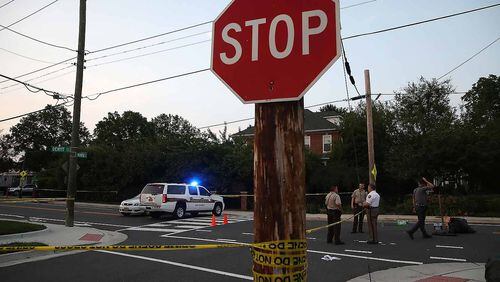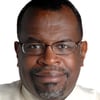Americans are at their best when enemies are external, we believe. At such moments, intuitively, we know how to lock arms and reach across divides great and small. Then we can best lean – united – into whatever crisis threatens our shores, interests, or way of life.
The America within our borders is the one that can vex us. As in the internal struggles that can flummox us and cause this great nation and its many parts to stumble and slide. At times, we even lose our way for a bit, succumbing to whatever tantalizing gumbo of deceit and division that lures us into sampling its corrosive flavor of the moment.
We’re in the thrall of such a period right now, with the latest violent symptom of our national malady being the shootings last week in Alexandria, Va.
The attack shocked all people of good intentions, as it should. In truth, though, this latest, politically driven assault on human flesh – along with others – should be no surprise to rational souls on any side of any partisan aisle.
For nearly a decade now, America has worked hard at slashing to pieces a civic fabric best described by the phrase, “Out of many, one.” We’ve tried our level damnedest to make that read the other way around – with great success.
We all know that; many will admit it even. And, in the very next breath, we blame the other guy, the other party, the other religion, the other creed, the other nationality, the other race. It’s not my fault, we reflexively proclaim, all but reaching for a ceremonial washbowl to scrub our hands of any culpability, just as Pontius Pilate did two millennia ago.
Make no mistake; criminality and criminals deserve united condemnation, justice and punishment. The gunman who opened fire last week in Alexandria, critically wounding two men and injuring several other people, was no political hero. In the parlance popular today, by all indications, he was a common thug. The law officers who bravely stopped this rampage, fatally wounding the suspected shooter, are heroes who most likely saved lives.
James T. Hodgkinson, the man who took aim at GOP lawmakers during their baseball practice, is only a symbol of the sickness facing these should-be-United States of America. In that sense, he is of a kind with the likes of Charleston church murderer Dylann Roof, or the suspected killer of two heroes on a Portland commuter train last month, along with others whose acts of violence, bigotry and hatred desecrate ideals of decency and peace.
All of these ignoble souls are symptoms of a grave illness that has settled over the American populace. We now see what divides us far more clearly than what unites us. Lost in that collective myopia is that we almost always have far more in common than not.
That’s easily thrown aside in a day when political campaigns persist long after elections are decided, when the name-calling never ends and mud-slinging comes nowhere near describing the level of rancor that keeps people, and even institutions, perpetually simmering against injustices perceived or real.
Each of us, every political party, and many of our organizations shoulder a share of the blame for a state of affairs that should shame us, and would surely have appalled the wisest of our forebears.
A Bernie Sanders supporter who opened fire on lawmakers is but one piece of a muck-laden chain that counts among its links such things as the “joke” to “Pray for Obama” that cited an Old Testament verse urging that a leader’s wife be a widow and his children orphans. The angry, underlying sentiment is dismayingly similar — even if evil, or deranged, minds don’t always act out on coarse, uncivil – and increasingly commonplace – emotions.
Such vile discourse should be beneath us. That it is not is a tragedy, even if such is to be expected in a time when, more than ever, people can choose to hear only what they want to, fueled by social media’s artificial intelligence that sends our way only what we want to see, discarding from our inboxes any conflicting ideas or thoughts.
That is no way to be American, we believe. The late President Ronald Reagan and House Speaker Tip O’Neill knew better. They taught us all by navigating at times through serious disagreements toward compromise and solutions. They would be shocked by how far we’ve fallen away from the ancient ideal of disagreeing without being disagreeable.
The “loyal” half of “loyal opposition” has been stripped from our national affairs and discourse. Opposition is now to be destroyed, figuratively and, increasingly, literally. The end result will be even-harder divisions under which no nation can endure – let alone prosper.
Canadian politician and historian Michael Ignatieff warned of this in a 2012 address at Stanford University. He compared affairs in the U.S. and Canada to Germany in the 1920s. “Fascism took the fatal step from a politics of adversaries into a politics of enemies,” he warned. “We are not there yet, but it is worth remembering that the fatal declension occurred in a democracy not so dissimilar to our own, in a society plagued by economic crisis, among a battered population looking for someone to blame.”
The Atlanta Constitution’s famed editor Ralph McGill, in a 1948 essay now preserved at Emory University, noted at the dawn of what would become the Civil Rights Movement that “in these days of states’ rights and civil rights controversies which have brought on at least a partial political secession and political war between some of the states. … as usual, those who make the least sense make the most noise.” McGill closed by noting that “States’ rights, and human rights have been maneuvered, by politics, into opposition. Common sense can save both.”
America now needs a lot more common sense — backed by common courtesies.
About the Author







